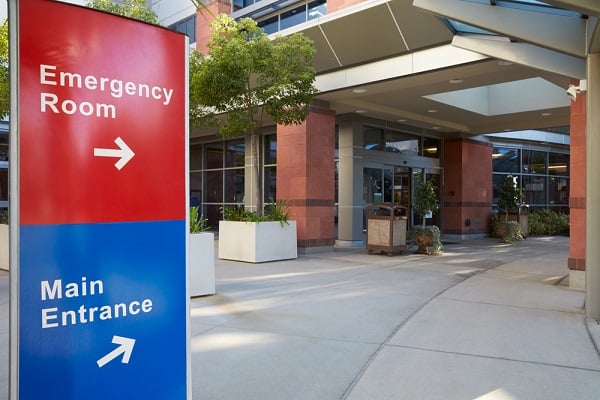 Community hospitals are attractive to pharma companies because 85 percent of cancer patients get care in such facilities. But the smaller hospitals often aren't equipped for trials. (Photo: Shutterstock)
Community hospitals are attractive to pharma companies because 85 percent of cancer patients get care in such facilities. But the smaller hospitals often aren't equipped for trials. (Photo: Shutterstock)
Small hospitals need money. Drug companies need patients for tests. Both sides say they've found a solution.
Regional hospitals across the U.S. are banding together to make it easier for pharmaceutical companies to use their facilities for clinical trials, a strategy that could boost revenue and give drugmakers increased access to patients.
Related: Hospitals band together on new generic-drug venture
Geisinger Health and five other local health systems in New Jersey and Pennsylvania have formed a consortium to increase participation in drug trials. A group of rural hospitals in North Dakota has ramped up its partnerships in the past two years to do more clinical trials. And in Ohio two cancer centers have partnered to expand trial accessibility.
“As a group we're stronger than just one,” said James Brazeal, Geisinger chief administrative research officer. “We're able to leverage that so we have more of an ability to participate, so that we can attract some of the trials that we couldn't attract before.”
Drugmakers are constantly searching for patients for clinical trials, which are complicated, expensive and can take years to complete. Finding the right patients quickly and easily has become more important as the industry focuses on treatments for rare diseases. In cancer alone, only 3 percent to 6 percent of eligible patients participate in clinical trials, according to the Cancer Research Institute.
Good pay
Pharmaceutical companies pay hospitals handsomely to test their medicines — sometimes more than $10,000 a patient, according to Halloran Consulting Group. Centralizing the process at the 4,500 regional hospitals in the U.S. — where technology and resources are often inadequate — can make a trial as much as 20 percent more profitable for participating facilities, according to Guidestar Research, which helps hospitals host trials.
By working as a single unit, small hospitals hope to compete with urban medical centers like Dana-Farber Cancer Center in Boston and Johns Hopkins University School of Medicine in Baltimore, which for decades have hosted most trials thanks to a larger base of patients and a staff of top doctors. For drugmakers, trials across several hospitals are cheaper and more efficient because they face fewer regulatory review boards.
It's a welcome alternative because hospitals increasingly resolve budget problems by getting acquired by larger systems: The first quarter of this year included 30 announced mergers. The pressure is also driven by falling revenue from insurance reimbursements for services like MRIs.
“We go to the hospital and can say, 'Hey there is a clinical trial sponsored by X pharmaceutical company that can help patients bring a new drug to treatment and can also help you with your bottom line and offset some losses in other areas,”' said Sean Walsh, managing partner at Guidestar Research.
Other options, such as trials sponsored by the National Cancer Institute, a federal agency, pay so little that they can leave facilities in the red.
“Some say, 'I'm getting out completely, I'm going to do more trials with pharma companies,'” said Kurt Oettel, a hematologist at Gundersen Health System, a nonprofit based in La Crosse, Wisconsin.
Collaboration has been shown to work in other sectors of health care, including among doctors in private practice. US Oncology Network, which has more than 1,400 cancer physicians, helped streamline trial work for Johnson & Johnson's blockbuster myeloma drug Imbruvica. That helped enroll patients quicker than what might have taken up to 18 months, said Jeff Sharman, a hematologist at Willamette Valley Cancer Institute in Oregon who works with US Oncology, a unit of drug wholesaler McKesson Corp.
“A two-month time window from blank paper to patient enrollment is extraordinary,” Sharman said.
Cancer patients
Enrollment time is crucial to saving money because the average cost of drug development has ballooned to $2.6 billion from $1 billion in the early 2000s, while 20 percent of trials are never completed.
Community hospitals are attractive to pharma companies because 85 percent of cancer patients get care in such facilities. But the smaller hospitals, often lacking adequate staffing, usually aren't equipped for trials.
J&J, which is working with the Geisinger consortium, said a “central contact with common processes” will help improve research in drug development.
“We share the goal of seeing new and effective treatments being developed and provided to patients in the most efficient means possible,” said Peter Ronco, J&J's head of global clinical development operations.
Complicating the drug-development process is a federal requirement that trial designs be approved by an institutional review board tasked with protecting patients' rights and safety. Collaborating can mean just one review, a welcome alternative to, say, 40 hospitals with potentially as many review boards.
“If we can do a trial instead with only one IRB for review — holy cow, that's amazing,” said Sandra Alten Maddock, chief executive officer of IMARC Research, a contract research organization.
In the Geisinger group, members hope up to 20 percent of trials over the next five years will come via the consortium, which will negotiate directly with pharmaceutical industry.
North Dakota-based Sanford Health, which runs 45 rural facilities, is doing more partnering and offering 300 trials. The work helps patients but also drugmakers, said David Pearce, who leads Sanford's research.
“No therapy will be approved if it's just done at Johns Hopkins or just done at Sanford Health,” he said. “You need to show it works at multiple sites.”
© 2025 ALM Global, LLC, All Rights Reserved. Request academic re-use from www.copyright.com. All other uses, submit a request to [email protected]. For more information visit Asset & Logo Licensing.







